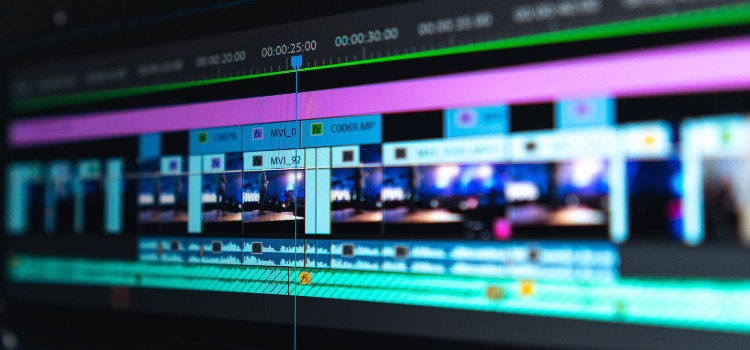Forex, or the foreign exchange market, used to be exclusive to banks, hedge funds, financial institutions, investment management firms and wealthy people who can afford to hire a private broker. Because of the internet, the forex market has become accessible to anyone from most countries. As long as they’re armed with forex knowledge and an online brokerage account, individuals can buy and sell currencies quickly with the click of a mouse under your own roof.
- Inbox Dollars - Get paid to check your email. $5 bonus just for signing up!
- Survey Junkie - The #1 survey site that doesn't suck. Short surveys, high payouts, simply the best.
- Nielsen - Download their app and get paid $50!
What is Forex?
FOREX is the largest financial market in the world, where people can exchange a specific currency for another in hopes of a profit in the future. And because the Forex market operates 24/7 (it doesn’t have a physical location), anyone can participate in forex trading any time of the day, no matter where you’re from.
Forex trading focuses on major currencies, like USD or Euro, which allows you to analyze the market more precisely instead of calculating risks for currencies from every country. This is the major difference between forex and stocks, which will confuse the hell out of a newbie trader when faced with thousands of stocks available for trading.
Currencies are traded and priced in pairs. For example, a quote for a EUR/USD pair of 1.2345 means the euro is the base currency (worth 1 unit) while the U.S. dollar is the quote currency (1.2345 in this example). The quote means that every 1 euro you have buys you 1.2345 U.S. dollars. If you invest €100,000 against USD with this rate, and the value of EUR goes up against the USD in the future to 1.5432, you collect a profit of $30,870 when you sell.
€100,000 x 1.5432 = 154,320
€100,000 x 1.2345 = 123,450
154,320 (future rate) – 123,450 (rate bought) = 30,870
In the same vein, if the EUR’s value depreciates and you decide to sell at that particular time, you’re going to lose money you’ve invested.
Seems easy, right? Yes, but not quite. Forex trading has its pros and cons, and it would be wise to learn about them before you invest your hard-earned cash.
Pros of Forex Trading
- Hiring Brokers are Optional – In the past, you had to hire a personal broker to trade foreign exchange currencies. But with online access to trading platforms readily available, you’ll be able to waive very high broker fees completely. You still can hire a broker to do the job for you, but it’s no longer a requirement.
- Trade Forex 24/7 – You’re also no longer tied to the trading floor and broker operating hours, since the forex market now operates round-the-clock.
- Free training – Online trading platforms encourage beginners to trade forex, which is why many of them provide educational materials and access to a demo account, allowing anyone to “practice” trading and get used to how forex works.
- Lower cost and entry amount – Back in the day, brokers require a “minimum” amount to be able to trade forex. These days, you can invest for as little or as much you want without constraints. There are still transaction fees involved though, which can be easily monitored and reduced by timing your investments properly.
Cons of Forex Trading
- Risky and Volatile – Like all markets, the forex market can be volatile at times. If you don’t have experience in forex trading, the risk levels increase tenfold. And since you don’t have a personal broker to ask help from, there’s a chance that your trading strategies become unprofitable or even lead to huge losses.
- Minimal regulation – Should anything go wrong with your transactions done from the trading platform of your choice, there is very minimal regulation or recourse you can take. This is because trading in the forex market isn’t carried out on a centralized exchange.
- Go against Big Traders – Although the forex market has become accessible thanks to the internet, banks, financial institutions, hedge funds, and other organizations continue to be major players in this market. With over $5 trillion traded every day, these major players can influence price movements. As such, those with smaller amounts to trade may face some disadvantages if you don’t stay up-to-date with these price changes.
Can You Turn Forex Trading into a Full-Time, Work-from-Home Job?
Forex trading can be a lucrative source of investment, but only for the right people. While it has become accessible, it isn’t for everyone. Learning the ins and outs of the forex market is important, so you’ll be able to create an effective system that allows you to pinpoint risky pricing changes, sustain losses and maintain or profit from your investment despite market fluctuations.
Note that because of the volatility of the forex market, you shouldn’t rely on the potential profits of your forex trading as your income. This is particularly true if you’re just starting out. Many online trading platforms will encourage you to quit your job and trade full-time, but you shouldn’t give up your main source of income just yet.
Realistically, you should have enough capital to be able to maintain your lifestyle even if you quit your job in hopes of trading forex full time. If you really want to end your 8-to-5 job, make sure you’ve spent plenty of time trading forex live and have conducted trial-and-errors multiple times when creating your own trading system.
However, you should also know that you can always trade forex on the side and still become consistently profitable, even if you have a full-time job. You just have to be emotionally prepared, armed with trading knowledge, and are passionate at trading forex. Your success in the forex market will boil down to how much capital and effort you’re willing to invest with forex.





